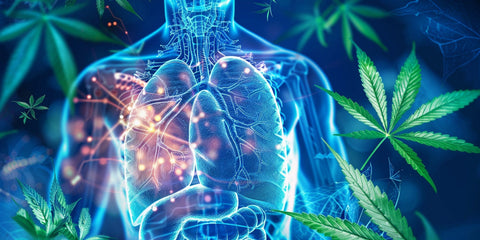In recent years, the growth of interest in cannabidiol (CBD) has expanded rapidly, with various new products containing cannabinoids dominating markets around the world. While derived from the cannabis plant, CBD is a non-psychoactive compound offering various health benefits. Research into understanding its potential applications in diverse fields like neurology, dermatology, psychiatry, and immunology is gaining momentum as scientists delve deeper into this powerful natural compound. In this article, we discuss several recent studies that focus on the uses and effects of CBD.
The Role of CBD in Epilepsy Management
Recent scientific research has been instrumental in showcasing the efficacy of CBD for treating specific epilepsy-related disorders. Epidiolex, one such FDA-approved prescription CBD medication, has received positive endorsement from numerous clinical trials. It helps to manage treatment-resistant epileptic syndromes like Dravet Syndrome and Lennox-Gastaut Syndrome (LGS).
Dravet Syndrome: Finding Relief Through CBD
A study published in the New England Journal of Medicine revealed significant improvements in seizure frequency and severity among patients with Dravet Syndrome when treated with CBD. A double-blind, placebo-controlled trial involving 120 children and young adults resulted in the CBD-treated group experiencing a median reduction of 38.9% in convulsive seizures, compared to an overall decrease of merely 13.3% reported by the placebo group.
Tackling Lennox-Gastaut Syndrome with CBD
A similar study highlighted that oral doses of CBD have significantly diminished drop seizure frequency among patients with LGS. The randomized, double-blind, placebo-controlled study composed of 225 participants showed a significant 41.9% median reduction in monthly drop seizure frequency in the CBD treatment group, compared to a 21.8% reduction reported by the placebo group.
Anti-Inflammatory Properties of CBD
Inflammation plays a vital role in our body's natural response to injury or infection. However, chronic inflammation can lead to severe health concerns like arthritis, diabetes, depression, and even cancer. Researchers have been exploring CBD’s potential as an alternative remedy for inflammatory ailments due to its strong anti-inflammatory properties, derived from its interaction with our endocannabinoid system (ECS).
CBD's Impact on Inflammatory Bowel Disease
A recent study focused on evaluating the effectiveness of CBD use among patients suffering from inflammatory bowel diseases, such as Crohn's disease and ulcerative colitis. It demonstrated a quicker onset of clinical remission and a reduced rate of corticosteroid dependency when treated with CBD, compared to traditional medications.
Reducing Osteoarthritis-induced Inflammation With CBD
Another study analyzed the effect of topical application of CBD gel on rats experiencing osteoarthritis. Remarkably, it revealed that the application of CBD quickly reduced joint swelling and provided long-lasting pain relief. Noteworthy was the finding that CBD delayed the progression of arthritis within the joints while having no significant effect on liver or kidney function.
Potential Psychiatric Applications of CBD
Growing evidence supports the use of CBD as a potential therapeutic remedy in various psychiatric disorders, including anxiety, depression, and post-traumatic stress disorder (PTSD).
CBD and Anxiety Disorders
One scientific review examined multiple studies concerning CBD's effect on treating anxiety disorders, such as generalized anxiety disorder, panic disorder, social anxiety disorder, and obsessive-compulsive disorder. The review observed that CBD has a calming effect on the central nervous system, ultimately aiding in reducing anxiety symptoms among patients.
Fighting Depression With CBD
Another scientific study sought to understand CBD's antidepressant-like effects by observing its potential influence on neurotransmitters like serotonin and dopamine. It found that CBD effectively acted upon certain brain receptors, enhancing resilience against stress and displaying long-lasting relief from depression and anxiety-related disorders.
CBD's Impact on PTSD Management
A case study published in the Journal of Alternative and Complementary Medicine examined ten cases of treatment-resistant PTSD experienced by war veterans. Interestingly, it reported that CBD treatments improved sleep quality, reduced nightmares, and radically decreased overall PTSD symptomatology.
Understanding CBD's Composition Through Research
While most studies embrace the potential therapeutic benefits of CBD for various ailments, ongoing research is likely to reveal new discoveries related to its side effects, optimal dosages, and possible drug interactions. The ever-increasing body of evidence favors the use of CBD in mitigating diverse health issues. Consequently, this encourages further exploration into the molecular composition and mechanisms behind this multi-faceted natural compound. As researchers continue unveiling the myriad advantages of CBD, we can expect more groundbreaking medical and therapeutic applications in the foreseeable future.



